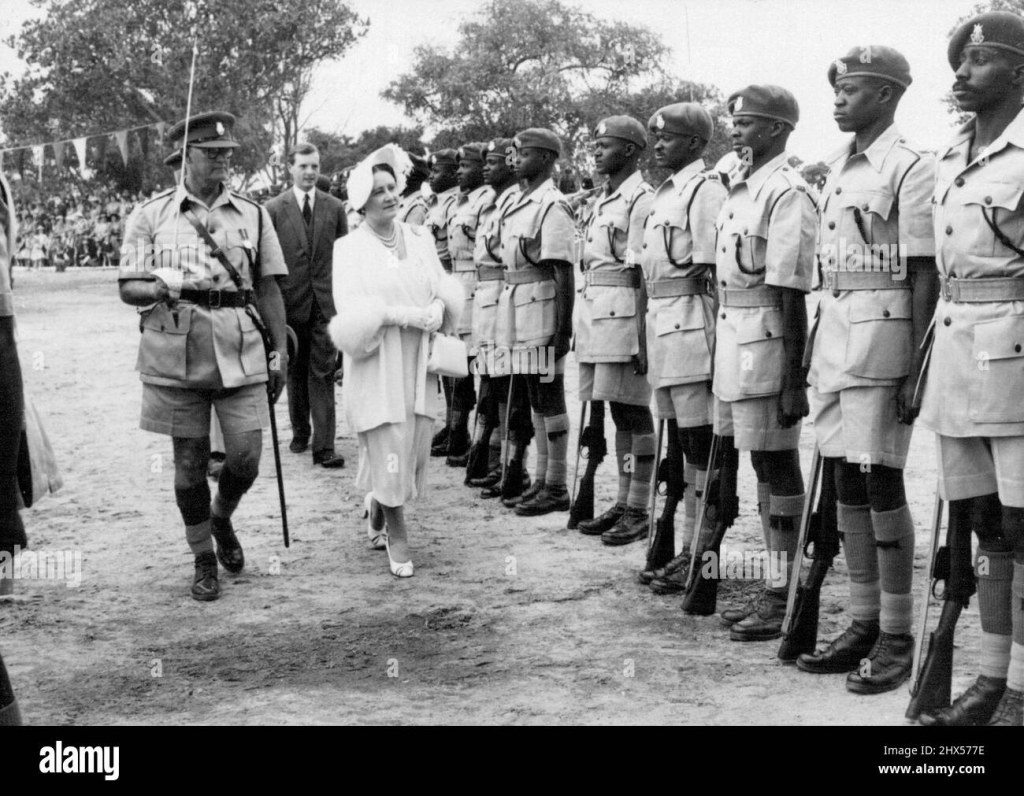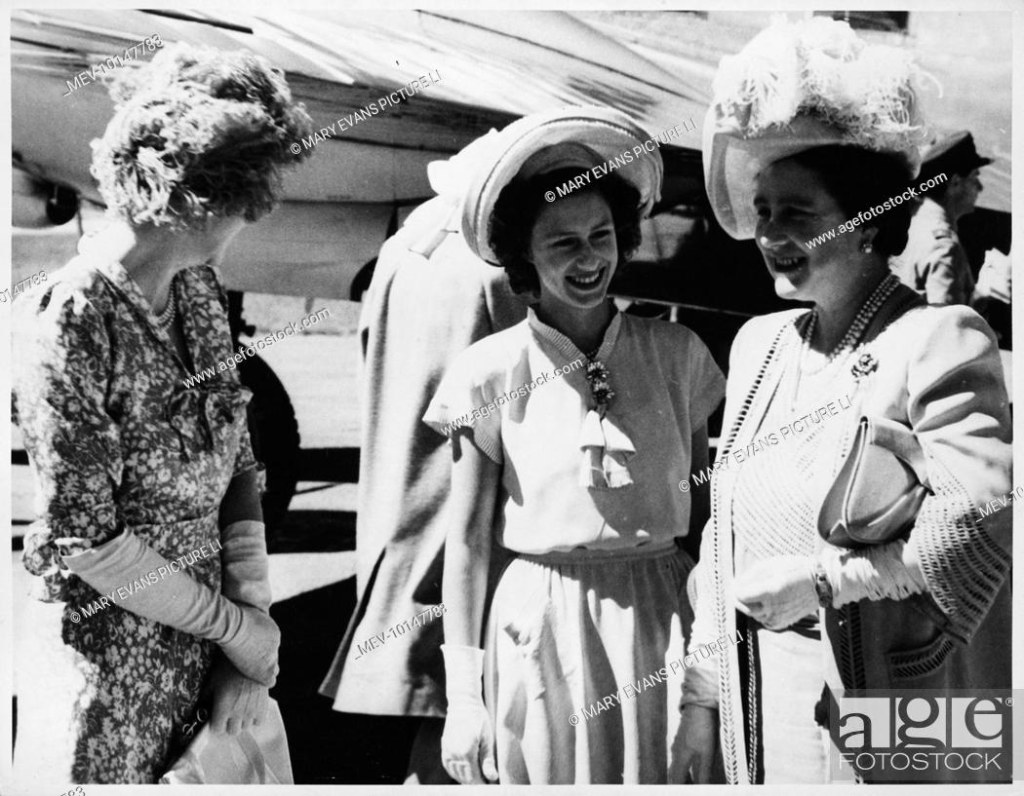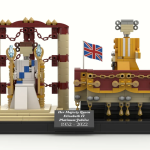Unveiling The Majesty Of Queen Elizabeth Rhodesia: Embark On A Captivating Journey Now!
Queen Elizabeth and Rhodesia: A Fascinating Story of Power and Controversy
Greetings, Queen Elizabeth admirers! In this article, we will delve into the intriguing history of Queen Elizabeth and her connection to Rhodesia. Prepare to uncover the captivating tale of power, controversy, and the legacy left behind by one of the world’s most renowned monarchs.
Introduction
Queen Elizabeth II, the longest-reigning monarch in British history, has left an indelible mark on the world. Her reign, which began in 1952, witnessed significant changes in the British Empire, including the decolonization of Africa. One of the most contentious chapters of her reign involved the relationship between the British Crown and Rhodesia, a former British colony in southern Africa. In this article, we will explore the key aspects of Queen Elizabeth’s involvement with Rhodesia, shedding light on the what, who, when, where, why, and how of this fascinating chapter in history.
3 Picture Gallery: Unveiling The Majesty Of Queen Elizabeth Rhodesia: Embark On A Captivating Journey Now!



What is the Rhodesia Controversy?
The Rhodesia controversy refers to the political and constitutional crisis that unfolded in the late 1960s and early 1970s, surrounding the unilateral declaration of independence (UDI) by the white minority government of Rhodesia. This move was led by Prime Minister Ian Smith and aimed to maintain white minority rule in the face of growing pressure for majority rule. The UDI was not recognized by the international community, leading to years of isolation and economic sanctions imposed on Rhodesia.
Who were the Key Players?
The key players in the Rhodesia controversy were Queen Elizabeth II, Prime Minister Ian Smith, and the various political factions involved. Queen Elizabeth, as the reigning monarch, had a vital role to play in resolving the crisis and determining the future of Rhodesia. Prime Minister Ian Smith, on the other hand, was the driving force behind the UDI and the leader of the white minority government. Additionally, political leaders such as Joshua Nkomo and Robert Mugabe represented the interests of the African majority.
When did the Rhodesia Crisis Occur?

Image Source: alamy.com
The Rhodesia crisis unfolded over several decades, with the key events occurring between 1965 and 1980. The unilateral declaration of independence took place on November 11, 1965, when Prime Minister Ian Smith announced Rhodesia’s separation from British rule. The crisis reached its peak in the 1970s, with intensified guerilla warfare and international pressure mounting against the Smith government. It wasn’t until 1980 that a peaceful settlement was reached, leading to the establishment of the independent state of Zimbabwe.
Where did the Rhodesia Crisis Take Place?
The Rhodesia crisis primarily took place in Rhodesia, a former British colony located in southern Africa. Rhodesia, which is now known as Zimbabwe, was a landlocked country bordered by South Africa, Mozambique, Botswana, and Zambia. The capital city, Salisbury (now Harare), served as the center of political activity during the crisis.
Why was the Rhodesia Crisis Significant?
The Rhodesia crisis was significant for several reasons. Firstly, it highlighted the struggle for self-determination and majority rule in Africa, shedding light on the broader issues of colonialism and racial inequality. Secondly, it showcased the role of the British monarchy in resolving political crises and its ability to adapt to changing global dynamics. Additionally, the crisis had far-reaching consequences for Rhodesia’s economy, international standing, and the subsequent formation of the independent state of Zimbabwe.
How was the Rhodesia Crisis Resolved?
The Rhodesia crisis was ultimately resolved through a combination of diplomatic efforts, economic sanctions, and military pressure. Queen Elizabeth played a crucial role in facilitating negotiations between the warring factions and encouraging a peaceful resolution. The Lancaster House Agreement, signed in 1979, paved the way for free and fair elections, leading to the independence of Zimbabwe in 1980 and the end of white minority rule.
Advantages and Disadvantages of the Rhodesia Crisis

Image Source: www.rct.uk
The Rhodesia crisis had both advantages and disadvantages. On one hand, it exposed the injustices of colonial rule and paved the way for majority rule in Rhodesia, bringing an end to white minority domination. This was a significant step towards equality and self-determination for the African majority. On the other hand, the crisis resulted in years of political instability, economic decline, and social unrest. The economic sanctions imposed on Rhodesia had a severe impact on the country, leading to widespread poverty and hardship.
Frequently Asked Questions (FAQ)
1. Was Queen Elizabeth directly involved in the Rhodesia crisis?
Yes, Queen Elizabeth played a significant role in resolving the Rhodesia crisis. She utilized her diplomatic skills and influence to encourage negotiations and facilitate a peaceful settlement.
2. How did the Rhodesia crisis affect the relationship between the United Kingdom and Rhodesia?

Image Source: agefotostock.com
The Rhodesia crisis strained the relationship between the United Kingdom and Rhodesia. The unilateral declaration of independence was not recognized by the British government, leading to economic sanctions and diplomatic isolation.
3. What were the long-term consequences of the Rhodesia crisis?
The long-term consequences of the Rhodesia crisis included the establishment of the independent state of Zimbabwe, the end of white minority rule, and the addressing of racial inequalities. However, it also resulted in economic decline and political instability.
4. How did the Rhodesia crisis impact the African majority?
The Rhodesia crisis had a profound impact on the African majority. It brought attention to their struggle for self-determination, leading to the eventual establishment of majority rule in Zimbabwe. However, the years of conflict and economic sanctions also resulted in widespread poverty and hardship.
5. What lessons can we learn from the Rhodesia crisis?
The Rhodesia crisis teaches us about the importance of inclusivity, equality, and peaceful negotiations in resolving political conflicts. It also highlights the role of the international community in addressing issues of colonialism and racial inequality.
Conclusion
In conclusion, the story of Queen Elizabeth and Rhodesia is a captivating tale of power, controversy, and resilience. Queen Elizabeth’s involvement in the Rhodesia crisis showcased her diplomatic skills and her commitment to ensuring a peaceful resolution. The legacy of this chapter in history is a reminder of the importance of addressing colonial injustices and striving for equality. Let us learn from the lessons of the past and work towards a more inclusive and just future.
Disclaimer: The views and opinions expressed in this article are those of the author and do not necessarily reflect the official policy or position of Queen Elizabeth II or the British monarchy.
This post topic: Queen Elizabeth


